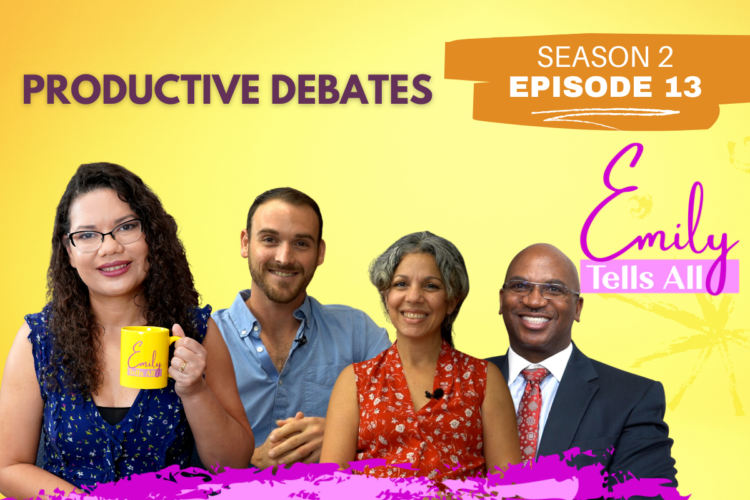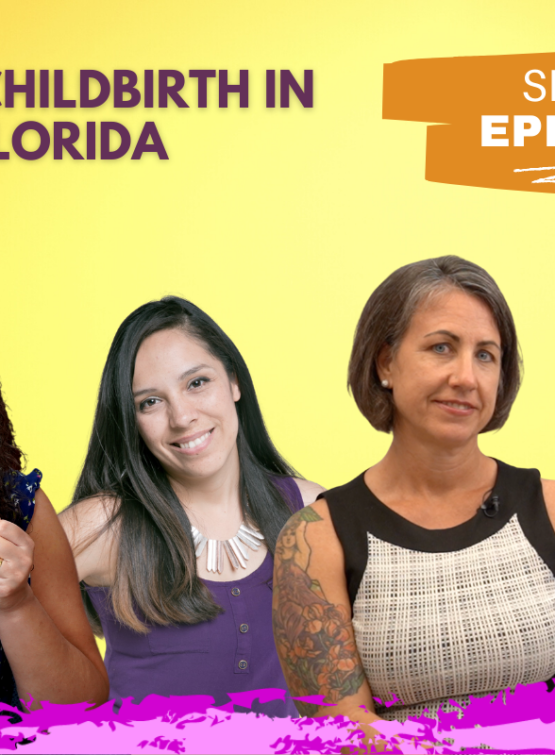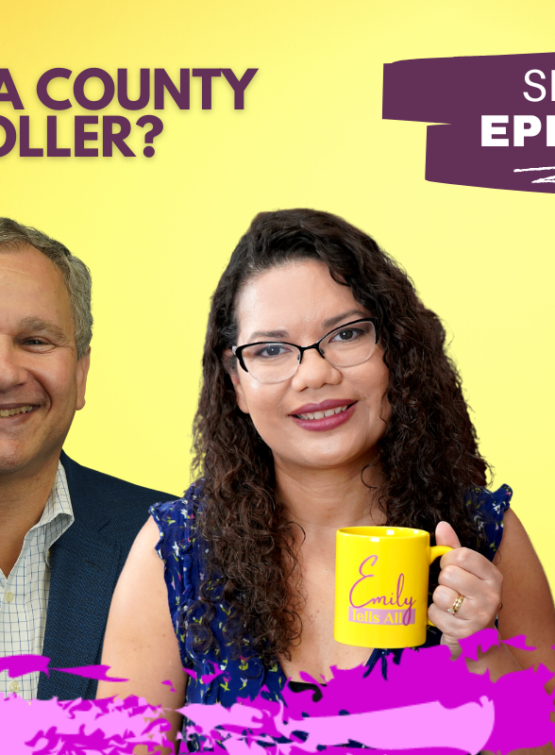AIR DATE MARCH 31, 2022
Title: Productive Debates
Knowing how to engage in healthy discussions is crucial for maintaining open and honest relationships. Emily discovers strategies for holding a productive debate as well as what to consider during online discussions.
Guests and Locations
Downtown Toastmasters Club 6084, Current & Immediate Past Presidents – Jonathan Samuelson & Faith Amon
Rollins College & FSU School of Medicine, Debate Team Coach, Professor of Philosophy, Clinical Ethicist – Dr. Eric Smaw
Strategies for Holding a Productive Debate
Knowing how to engage in meaningful discussions is crucial, and part of any productive debate is effective communication. Without honing our communication skills, maintaining open and honest relationships and making positive change is impossible.
So, how does one strategically hold a productive debate while being respectful to both parties? I sat down to hear from the current and former presidents of the Downtown Toastmasters chapter, Jonathan Samuelson and Faith Amon, along with Dr. Smaw, the Debate Team Coach at Rollins College.
They shared insight on the power of debate, what it looks like in its productive and unproductive forms, and how you can become a better debater.
Defining What a Productive Debate Looks Like
At Toastmasters, they take debate seriously and use it as a way to prepare you for the business world. Both Jonathan and Faith advise against using crutch words in such discussions to have a productive debate.
“We have an ‘uh’ tabulator, who is the person that listens for crutch words, ums, ahs, and stuff like that while you’re speaking. And when you say those words, what happens? [buzzing sound],” they explain. Leave out crutch words for a more productive debate.
“Part of being a good speaker is knowing your audience and tailoring your speech to that audience,” they continue. Answer each question as honestly as you can without hurting your audience’s feelings. Think of the crowd.
Active listening is another essential part of having a constructive debate. Listen to what is being asked of you and how the questions are asked.
Defining What an Unproductive Debate Looks Like
Debates can become unproductive when you have someone who is ideologically entrenched. In other words, a person that has chosen to take a side on a subject because of religion or cultural beliefs will not be easy to sway, because their stances are deeply intertwined with lifelong values.
The productivity of a debate also depends strongly on the skill level of the participants.
“You might have debaters who have opinions, but they aren’t skilled in the art of articulating the positions that they have,” explains Dr. Smaw. Everyone holds a position on a topic; we all have assumptions. However, the debate becomes unproductive when we do not understand what we should be doing when articulating our positions.
Dr. Smaw continues, “When that happens, you’ll have people who seemingly disagree, but they agree on the overarching position where there are small nuances that they disagree on. That’s not actually a debate because that’ll be true of people who on are on the same side.”
Jonathan and Faith chime in their opinion, “So, where it can get most disruptive is evaluations and critiquing. Nobody likes to hear it; nobody really likes to give it.” This is part of the struggle where ego gets involved, and the debate becomes unfruitful because, now, feelings are hurt.
Conclusion
To make positive change in the best interests of our society, Americans have a responsibility to be engaged, educate ourselves, and treat everyone charitably. Dr. Smaw adds, “I think if we can take on those three responsibilities when we engage in debating, I think we’ll move a long way towards what America’s supposed to be as a Western liberal democracy.”
If you’d like to debate with the best and improve your constructive discussion skills, consider joining Toastmasters at their Downtown, Orlando location.



